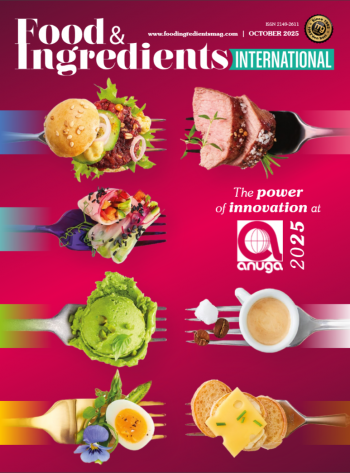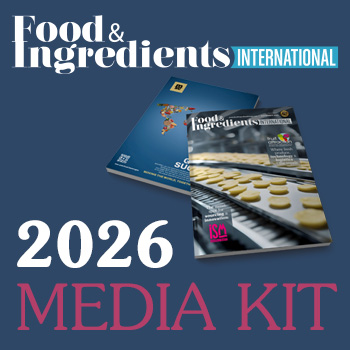England, with its cosmopolitan structure and wealthy population, that is one of the most diverse and innovative markets in the world it is among the European countries investing the most in the food and beverage sector. The food and beverage industry is one of the key drivers of the UK economy. Considering the manufacturing turnover and employment rate, its contribution to the economy is approximately 15% and the sector provides direct employment to more than 440,000 people. With this employment, the middle class of the country directly contributes to the economy through the food sector and keeps production alive. There is a prejudice that jobs in the food and beverage industry are lowpaying jobs. However, studies show that weekly earnings are higher than other industries. The average weekly wages of food and beverage industry employees were announced as 466 pounds in the most recent report in 2013.
An increase of approximately 15% was observed in exports
Production of food products presents a great diversity in terms of sectors. The main product groups can be listed as breakfast cereals, beverages, candies, fish and fish products, processed fruit and vegetables, meat and meat products, vegetable and animal oils, chicken products. In addition, it has been announced by experts that there has been an increase of approximately 15% in the export of processed food products in the last 10 years. As this increase is cited as an indication of the high demand for British products by other countries, over 1500 new products are introduced to the market every 4 months due to the high competition in the sector.
 UK is number one in the world for healthy nutrition
UK is number one in the world for healthy nutrition
English consumers started to pay more and more attention to the issue of healthy nutrition due to the intense campaigns. In this context, the demand for organic, low-fat, foods for the allergic people is increasing rapidly. England ranks first in the world in terms of consumer awareness of healthy eating. In particular, the ‘five a day’ campaign, which encourages consuming five portions of fruit and vegetables or equivalent products every day, is referenced in many nutrition, food and beverage marketing campaigns. As consumers have begun to influence every aspect of the food and beverage industry, England has begun to import various food products that are not included in its production.
Imports are mostly made from the Netherlands and France
While the demand for processed agricultural products is increasing gradually, England allocates 3.83% of its economy to imports. Most of this import, which has reached a volume of 24.15 billion dollars, is met from France, the Netherlands, Germany and Italy. France ranks first with the import of processed agricultural products worth 4.18 billion dollars.
In England’s food imports the Netherlands with $4.12 billion, Germany with $3.81 billion and Italy with $2.99 billion, after France rank.
As English people is one of the nations that travel the most among all European countries and therefore one of the nations that are most open to different tastes and varieties in food the demand for ethnic and local foods in the market is also increasing rapidly,. This predisposition to different tastes also affects the food and beverage industry, where production is limited, and increases the size of imports.
It is seen that all European Union countries stand out in imports, especially the Netherlands and Denmark in meat products, Ireland in dairy products, Spain and Netherlands in vegetable products, France in cereals, Italy in soft drinks, alcoholic beverages and vinegar.
 In addition, edible fruits and nuts from Spain, South Africa, the Netherlands and Chile, coffee tea, spices group from India, Kenya and Germany, animal and vegetable oils from the Netherlands, fish and crustaceans Iceland, China and Norway sugary goods, from France, Mauritius and Germany, cocoa and its products from Ghana and Ivory Coast, mainly Germany, the Netherlands and France have been imported highly.
In addition, edible fruits and nuts from Spain, South Africa, the Netherlands and Chile, coffee tea, spices group from India, Kenya and Germany, animal and vegetable oils from the Netherlands, fish and crustaceans Iceland, China and Norway sugary goods, from France, Mauritius and Germany, cocoa and its products from Ghana and Ivory Coast, mainly Germany, the Netherlands and France have been imported highly.
When we specifically examine food products, as sector England forms 10% of imports and 6% of exports.
When the bilateral trade is analyzed in terms of food products, Turkey has a 0.8% share in the England’s food product imports. In the England’s imports of food products, the Netherlands ranks 1st, France 2nd, Ireland 3rd, and Turkey ranks 21st.
The food industry is the largest manufacturing sector in the country, indirectly employing 4 million people and generating around £121 billion annually. Experts emphasize that the growth of the food and beverage industry plays the most important role in overcoming the economic consequences of Brexit.
Economic downturn realized after Brexit
England has not been able to benefit from single market opportunities since its departure from the European Union. Since the customs privileges and the right of free movement in EU regulations have disappeared, the UK economy has been adversely affected by this process since 2017. From Brexit perspective, some losses were inevitable for both the EU and the UK. England is a powerful actor economically and politically, but as a result of losing the right to benefit from many special arrangements such as the single market, free movement, and citizenship rights, it sometimes faces the danger of being empty on the market shelves, as there are interruptions in the food supply chain. On the other hand, after Brexit, serious fluctuations occurred in the country’s economy and it was stated that the Pound saw its lowest value in the last 30 years.
In England, the authorities of the Food and Beverage Federation warned that a shortage of labor could cause a third of the food sector to collapse during the exit process from the EU.
The Food and Beverage Federation of England conducted a study on this issue. According to the research, while the Environment, Food and Rural Relations Committee made a statement regarding the possible effects of Brexit on the food sector said “If measures are not taken as soon as possible to eliminate the shortage in labor supply, the current problem will turn into a crisis in the future, and there will be significant disruptions in the food and beverage supply chains.”, English government officials have declared that they will take initiatives to offer the global gold standard in food production after Brexit. The studies by the ministry are still going on by supporting the development of more environmentally friendly food and farm practices in order to set the gold standard.
 It contributed to 2.71% of the England’s economy
It contributed to 2.71% of the England’s economy
According to the English Retail Consortium, it was announced that the European Union accounts for 30 percent of the food in England and the country is dependent on Europe for fresh food, especially during the winter months. At the research, international sales of food and beverage products in the UK in the first half of 2019 increased by 5.1% compared to the same period of 2018. While exports to EU countries followed this trend, sales to non-EU markets grew four times faster.
According to the report on agricultural products and processed foods, England contributed to 2.71% of the country’s economy with exports of 10.73 billion dollars. While France is in the first place with 1.24 billion dollars, it has been announced that it exports to the Netherlands with 1.22 billion dollars and Germany with 1.20 billion dollars. While it was reported that England aiming to increase its market share by exporting 402.81 million dollars to China, apart from the European Union countries more than a quarter of all food consumed in England comes from the European Union, it is estimated that the income of the whole food market is just over 157 billion English pounds.



















